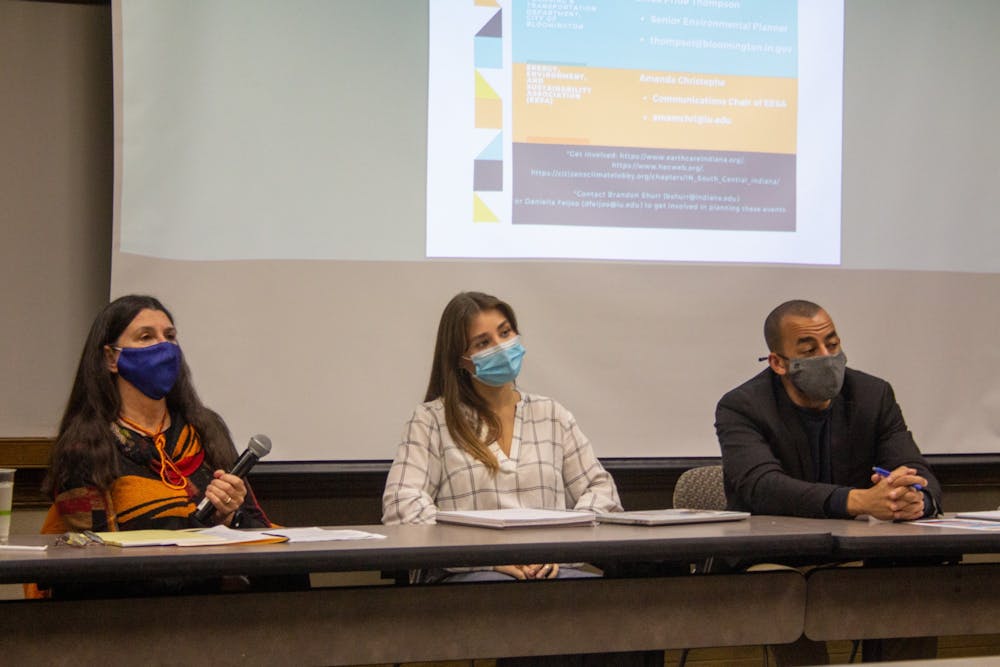IU students, faculty and community members attended a panel on climate change and climate justice Tuesday night at the Indiana Memorial Union. The panel was organized by the Student Involvement and Leadership Center.
The event was part of the SILC’s Community Engagement Event Series, which are monthly panels of community and campus leaders who address social issues impacting the local community.
Executive Director of Diversity, Equity, & Inclusion for IU Student Government Joa'Quinn Griffin moderated the panel. Griffin asked the three panelists questions before opening the forum for questions from the audience.
Senior Amanda Christophe, one of the panelists, is the communications chairwoman for the Energy, Environment, and Sustainability Association, a student group housed in the O'Neill School of Public and Environmental Affairs.
Christophe discussed the intersection between environmental issues and other social justice issues. The environmental movement in the 1960s and 1970s about human-caused pollution was born out of the civil rights movement, she said.
Christophe said marginalized communities should be at the forefront of environmentalism because they are most affected by climate change.
One of the panelists, a Ph.D. student Trevor Memmott studying environmental policy, said millions of Americans are struggling to pay their energy bills and experience energy insecurity. The most economically vulnerable populations, including minorities, elderly populations, those with a disability and households with young children, are hit the hardest.
“Climate justice is about making sure marginalized communities are not being disproportionately affected by climate change,” Christophe said. “Once we recognize that equity issues are inherently climate issues, we can take real action, and that conversation begins in the classroom.”
Linda Thompson, a panelist and the senior environmental planner in Bloomington, said the key to fighting climate change is through education and teaching young people how to fix the results of climate change.
IU Outdoor Adventures Manager Hannah McConnell attended the panel hoping to learn more about climate justice and the local efforts to combat climate change.
“My biggest takeaway from the panel is that there is a really incredible group of people who have really diverse knowledge on these issues that can be a resource for IU students and staff to learn more,” McConnell said.
Memmott said he hopes the audience left the panel with more knowledge on how climate change is affecting the local community and a renewed spirit of environmental activism. One local issue in Indiana is unpredictable crop yield and unstable revenue for farmers, he said.
“The goal of the panel is to center a discussion about the local impacts of climate change,” Memmott said. “Too often, we see climate change as a global issue with macro consequences, but the effects are being felt locally.”
There are many opportunities for people to combat climate change at a local level, Memmott said. He suggested college students can make a difference by protesting the university investing funds in fossil fuels.
“One thing that is not stressed enough is the importance of local action, especially in college cities like Bloomington,” Memmott said. “Federal legislation and international agreements are important, but local policies are just as important, and we often have a greater capacity to impact them.”
The panelists discussed how they cope with distressing news about climate change and how they can remain optimistic when spending so much time studying this issue.
“I find hope in my work and that hopefully it can have an impact on the real world,” Memmott said. “What other option do I have than to hope?”






